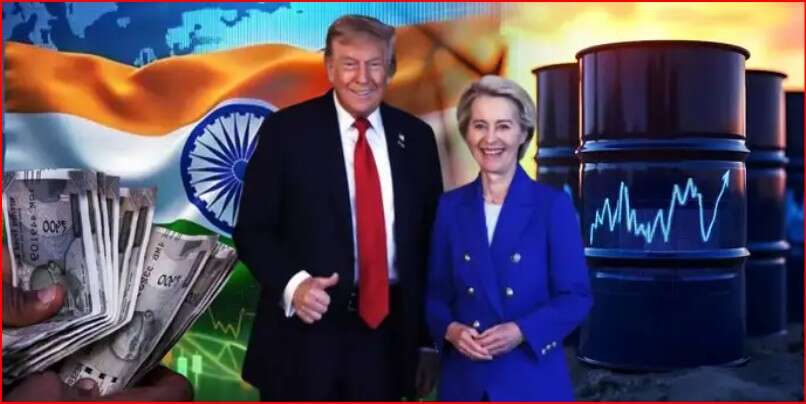The recent trade agreement between the US and the European Union (EU) has been considered a positive sign by the global markets. The agreement is expected to reduce uncertainty in global trade, which can promote economic activities. However, the impact of this agreement does not look as straightforward and positive on India. Indian rupee weakness, withdrawal of foreign portfolio investment (FPI), rising crude oil prices and negativity in stock markets are the main indicators of this.
Global impact of America-EU trade agreement
This bilateral trade agreement between the US and the European Union has managed to avoid a major economic conflict. Due to this, global economic stability is expected to increase. Euro’s strength and global stock markets rapidly indicated that trade tension between large economic blocks is decreasing. The agreement has reduced the global economic risk, which has increased the morale of investors.
Due to adverse effects on India
While positivity is seen globally, the situation in India looks different. After the deal, the pressure on the Indian rupee has increased and there is a danger of its devaluation. In July, foreign portfolio investors have made a net sale of about $ 75 million from the Indian stock market. On July 24, FPI sold $ 23.11 million in shares and $ 5.52 million in bonds. This trend is unlike the investment flow of the last three months, indicating that despite the global trade being stable, foreign investors have a tendency to exit India.
Rupee pressure and market response
The Indian rupee has fallen against the US dollar as compared to the Indian rupee. The main reason for this is the evacuation and increasing global instability of foreign investors. Also, there has been a disappointing performance in the stock markets. Investors have considered American and European markets to be more stable and attractive after the agreement, which has increased the possibility of capital out of emerging markets like India.
Rising crude oil prices and impact on Indian economy
The US-EU agreement as well as the expectations of a possible tariff break with China have promoted crude oil prices. Brent crude futures have reached a level of $ 68.7 per barrel. India is a major crude oil importer, so rising oil prices can make India’s import bill heavy. Its direct impact will be on trade deficit and inflation will increase, which can pressurize the Reserve Bank of India to increase interest rates.
Monetary policy and future signs of Federal Reserve
In the next few days, the monetary policy meeting of the Federal Reserve can also affect the economic environment. Although the chances of changes in interest rates are low, Fed’s statements and chairman’s comments will be important for investors. If there are indications of interest rate cuts in September, the American markets will become more attractive to foreign investors, which may continue the tendency of capital withdrawal in India.
India’s status and challenges
India is expecting a special trade agreement with the US, but the country will have to strengthen its economic status amidst rapid changes in global trade. Increasing capital flow towards large and stable markets may make difficulties in emerging markets like India to get investment.










